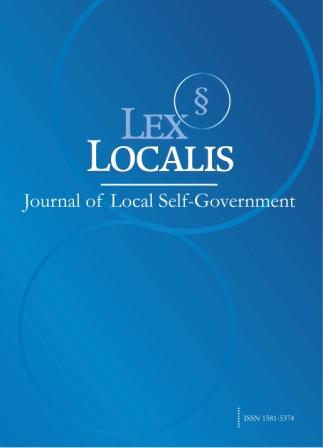ASSESSING COMMUNITY PREPAREDNESS AND VOLUNTEER RESPONSE CAPACITY TO TROPICAL CYCLONES ON OMAN’S AL BATINAH COAST
DOI:
https://doi.org/10.52152/Ključne besede:
Community preparedness; Volunteer response capacity; Tropical cyclones; Community resilience; Disaster risk reduction; Al Batinah Coast, Oman; Sendai FrameworkPovzetek
This study assesses community disaster preparedness and volunteer response capacity to tropical cyclones along Oman’s Al Batinah coast through a cross-sectional household survey of residents (N = 149). The questionnaire captured household and community preparedness actions, volunteer skills and willingness, risk perception, and prior cyclone experience. Preparedness was uneven: only 14.1% reported a written emergency plan, 16.8% had flood barriers or sandbags, and 25.5% held cyclone/flood insurance, while 69.1% maintained an emergency kit and 53.0% reported that all family members knew multiple evacuation routes. At the community level, early-warning penetration was high (91.9% receive official SMS alerts), but participation in drills (32.2%) and the presence of active emergency committees (40.9%) were limited. Volunteerism emerged as a major asset yet remained mostly informal: 62.4% had previously volunteered and 87.9% were very willing to assist in a future cyclone, but only 33.6% belonged to an organized emergency group and 26.2% reported no formal emergency training; access to specialized equipment was scarce. Risk perception and social capital were strong: most respondents expected a severe cyclone within five years and serious impacts if it occurred; trust in official warnings was near universal (93.3%), and 88.6% expected neighbors to help one another. Prior experience appeared catalytic, with 19.5% reporting changes to homes or habits after past events. When asked about priorities, respondents favored community-based training (55.7%), followed by neighborhood committees (12.1%), subsidized preparedness equipment (12.8%), and volunteer coordination centers (10.1%). Findings indicate that Al Batinah communities possess awareness, willingness, and cohesion but require structured local planning, regular training, formalized volunteer networks, and improved household mitigation/insurance to translate potential into resilience—advancing Oman’s alignment with the Sendai Framework’s community-centered disaster risk reduction.
Prenosi
Objavljeno
Številka
Rubrika
Licenca
Avtorske pravice (c) 2025 Lex localis - Journal of Local Self-Government

To delo je licencirano pod Creative Commons Priznanje avtorstva-Nekomercialno-Brez predelav 4.0 mednarodno licenco.







